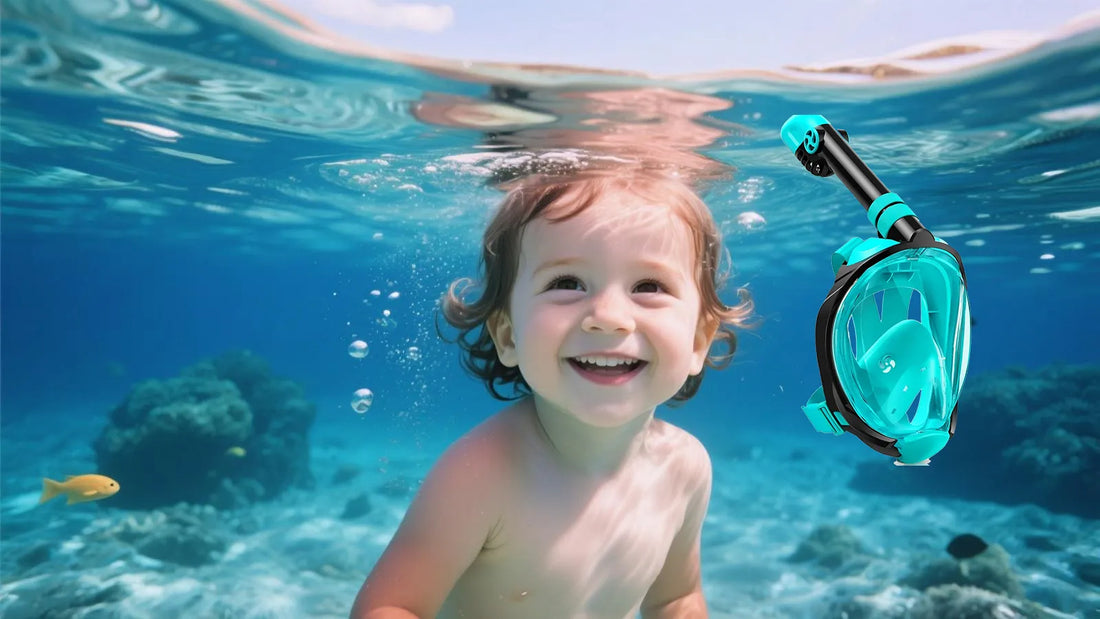Scuba diving is an exhilarating activity that allows people to explore the underwater world, but one question often arises: what is the minimum age for scuba diving? Understanding the age requirements is crucial for ensuring safety and compliance with industry standards. This article delves into the rules, safety considerations, and tips for young divers to make the most of their underwater adventures.
Understanding the Minimum Age for Scuba Diving
The minimum age for scuba diving varies depending on the certification agency and the type of diving activity. Most major scuba diving organizations, such as PADI and SSI, set the minimum age for junior certification at 10 years old. This allows children to participate in supervised diving activities and gain foundational skills in a controlled environment.
However, some organizations offer introductory programs for younger children, typically starting at 8 years old. These programs are designed to introduce kids to the basics of scuba diving in shallow water under strict supervision. It’s important to note that these programs do not provide full certification but serve as a stepping stone for future training.
Why Age Restrictions Exist
Age restrictions in scuba diving are not arbitrary; they are based on safety and developmental considerations. Children under a certain age may lack the physical strength, cognitive maturity, and emotional readiness required for scuba diving. For example, managing equipment, understanding safety protocols, and responding to emergencies require a level of responsibility that younger children may not possess.
Additionally, the physiological effects of diving, such as changes in pressure, can pose risks to developing bodies. Ensuring that young divers meet the minimum age requirement helps mitigate these risks and promotes a safe diving experience.
Junior Certification Programs
For children who meet the minimum age requirement, junior certification programs offer a structured path to becoming a certified diver. These programs are tailored to the needs and abilities of young divers, with simplified course materials and hands-on training. Junior certifications often come with certain restrictions, such as diving only with a certified adult or instructor and staying within specific depth limits.
As young divers gain experience and confidence, they can progress to full certification by completing additional training and meeting age requirements. This gradual approach ensures that children develop the necessary skills and knowledge to dive safely.
Safety Tips for Young Divers
Parents and guardians play a critical role in ensuring the safety of young divers. Here are some tips to keep in mind:
- Choose a reputable training organization with experienced instructors.
- Ensure that the child is physically fit and comfortable in the water.
- Start with shallow dives and gradually increase depth as skills improve.
- Always supervise young divers and follow safety guidelines.
- Encourage open communication about any concerns or discomfort during diving.
By prioritizing safety and proper training, young divers can enjoy a rewarding and memorable experience.
The Benefits of Scuba Diving for Young People
Scuba diving offers numerous benefits for young people, including physical fitness, environmental awareness, and personal growth. It encourages teamwork, problem-solving, and a sense of adventure. For many young divers, the experience fosters a lifelong appreciation for marine life and conservation efforts.
Introducing children to scuba diving at the appropriate age can also build confidence and resilience. Overcoming challenges and mastering new skills in a supportive environment can have a positive impact on their overall development.
How to Get Started
If your child is interested in scuba diving, the first step is to research local training programs and certification agencies. Look for programs that specialize in teaching young divers and prioritize safety. Schedule a consultation with an instructor to assess your child’s readiness and discuss the training process.
Remember, scuba diving is a skill that requires patience and practice. Encourage your child to take their time and enjoy the learning process. With the right guidance and preparation, they can embark on an exciting journey into the underwater world.
Scuba diving is a thrilling activity that opens up a world of possibilities for young adventurers. By understanding the minimum age requirements and prioritizing safety, you can ensure that your child has a safe and enjoyable diving experience. So, what are you waiting for? Dive into the adventure and explore the wonders beneath the waves!

